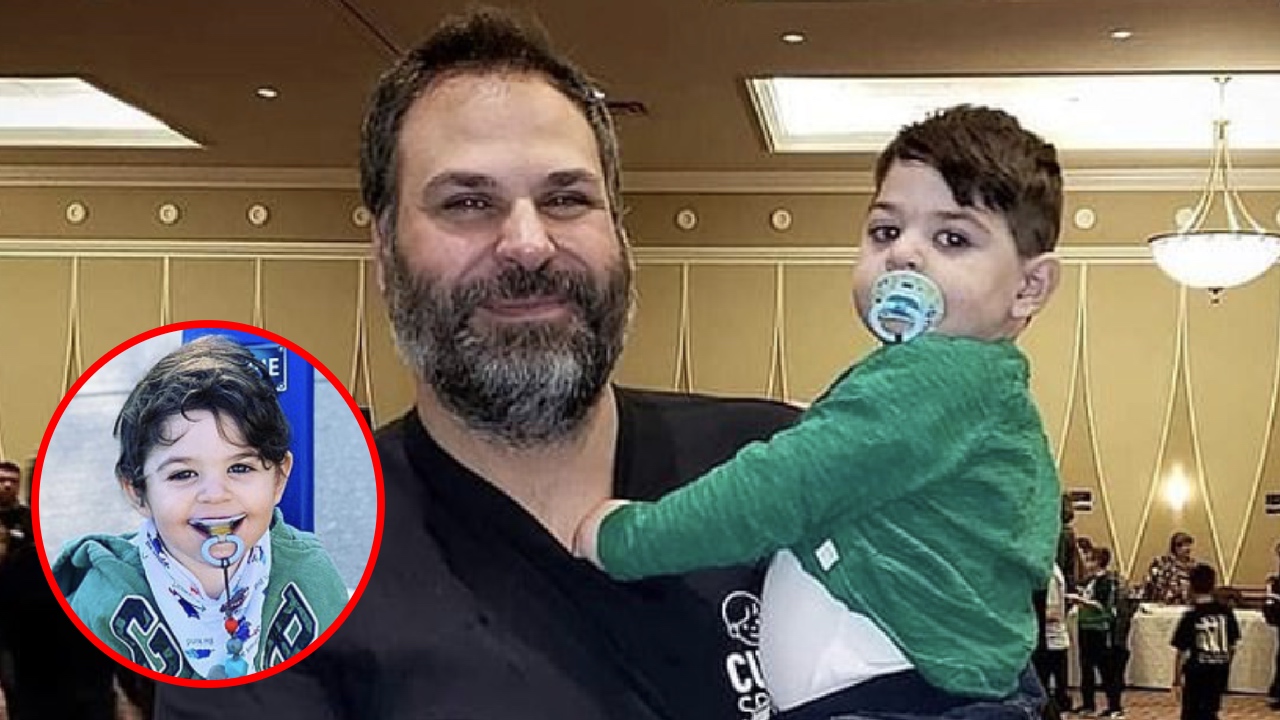Doting dad sells everything he owns to develop cure for son's "incurable" condition

A dedicated father has drained his life savings to help find a cure for his son's "incurable" disorder.
Terry Pirovolakis, a 44-year-old IT director, was hellbent on finding a cure for his six-year-old son Michael after he was diagnosed with Spastic paraplegia 50 (SPG50): a degenerative neurological condition that affects less than 100 people worldwide.
SPG50 affects children's development, leading to cognitive impairment, muscle weakness, and paralysis over the course several years, often ending in death usually before a patient reaches the age of 30.
"They said he'd never walk or talk, and would need support for the rest of his life," he recalled of the 2018 diagnosis.
"They told us to just go home and love him - and said he would be paralysed from the waist down by age 10, and quadriplegic by age 20," he continued.
Determined to save his son, Terry drained his life savings to start researching potential cures rooted in gene therapy, after reading countless journals on the subject and meeting with experts around the world.
Terry said, "We then liquidated our life savings, refinanced our home and paid a team at the University of Texas Southwestern Medical Center to create a proof of concept to start Michael's gene therapy."
The father soon signed a contract to start a gene therapy program, consisting of injecting cerebral spinal fluid into the patient's back, and after years of lab work, the treatment started to take, and on December 30th 2021, the government moved it forward.
"On March 24, 2022, my son was the first person to ever get treated with gene therapy at SickKids in Toronto," Pirovolakis, a father of three, told Fox News in detailing his medical odyssey.
Michael was the first to receive his father's one-time treatment, after Pirovolakis quit his job and started a nonprofit in California to devote himself to the cause.
The company, named Elpida Therapeutics, after the Greek word for 'hope', now has five employees and 20 consultants, with Michael now on the mend.
Since being treated, the youngster's condition seems to have stabilised, and he is now able to use a device to communicate with his family and caregivers.
Another three children who were able to receive the remaining doses from Pirovolakis' first batch, as the drug still costs about $1million to make for each child, are also seeing positive results.
"When I heard that no one was going to do anything about it, I had to - I couldn't let them die," Pirovolakis said. "We decided that we had to help other kids."
Despite it being approved, big pharmaceutical companies have been slow to manufacture the drug, with several firms rejecting the prospect when proposed, Pirovolakis said
"No investor is going to give you money to treat a disease that is not going to make money," he said. "That's the dilemma we're in."
Pirovolakis said that when his son was diagnosed, he was told the boy would be paralysed from the waist down by the age of ten and quadriplegic by the age of 20, forcing the father to do everything he can.
"We were told he would never speak or walk, and that he will have severe developmental delays. I just couldn't accept that fate for my child," he said.
"The technology to cure our children is already here. I hope that someone with immense wealth - and more importantly, the vision and influence - will step in."
Image credits: Facebook
